Is Chinese culture being Westernized?
中国文化被西化了吗?
以下是Quora网友的评论:
Understanding China
China is moving toward modernization. Instead of being westernized, China and Chinese culture are bursting with new vitality in the wake of collision and communication between traditional Chinese culture and the modern European and American civilizations.
中国正在走向现代化。在中国传统文化与现代欧美文明的碰撞与交流中,中国和中华文化不仅没有被西方化,反而焕发出了新的活力。
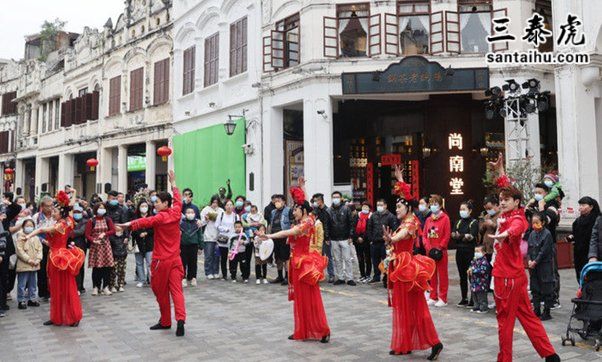
The modern concept of culture is an open, confident and progressive one. It is necessary to learn more boldly and comprehensively all the useful things in the world, digest them, localize them, contemporize them, popularize them, and turn them into an integral part of Chinese culture.
现代文化观是开放的、自信的、进步的。我们必须更加大胆全面地学习世界上一切有用的东西,消化它们,让它们本土化、现代化、普及化,让它们成为中华文化的组成部分。
China can never stop learning and borrowing from advanced foreign cultures, and absorb, digest and apply them while effectively inheriting and carrying forward Chinese culture, said Wang Meng, Chinese writer who served as Minister of Culture from 1986 to 1989.
曾于1986年至1989年担任文化部长的中国作家王蒙说,中国永远不会停止对外国先进文化的学习和借鉴,而是会在有效继承和发扬中国文化的同时,吸收、消化和应用它们。
Feng ian
Chinese culture has mainly three parts:
中国文化主要由3个部分构成:
(1) the traditional culture
(1)传统文化
It contains the Han culture as the majority and the ethnic minorities’ cultures (Manchurian, Mongol, Zhuang, Miao, Tiban, U, Dai, Tujia…) as the minor parts. Among which, Han, Manchurian and Mongol cultures have the main influence due to the Yuan-Ming-Qing Dynasties. The three cultures also have a lot of exchanges and absorptions with each other.
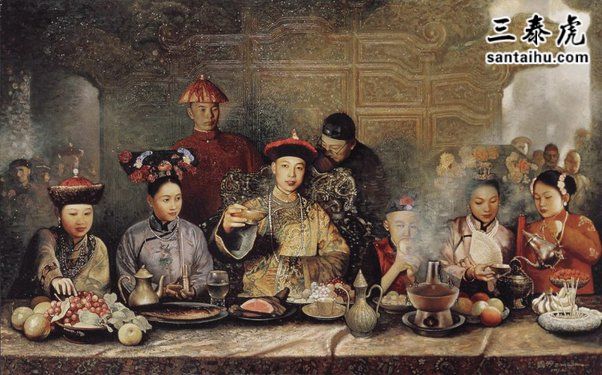
中国的传统文化以汉族文化为主,以少 数民族文化(满、蒙、壮、苗、藏、维吾尔、傣、土家族等)为辅。其中,在元明清时期,汉、满、蒙文化占主要地位,这三种文化之间也有很多的交流和同化。
Among the Han culture, there go the Dynasty culture. Every Dynasty has its own unique cultural elements and thinkings, either under the Han or minority regimes along with foreign migrants (including iongnu, ianbei, Persian, Jews, Arabs, Tiban, Qiang, Dangxa, Di, Japanese, Goguryeo, Southern Barbarian, Nanzhao, Miao, Indian, Turk, Khitan and Jurchen, Mongol, Manchurian). But overall, they did share Confucianism, meritocracy, the centralization of power, big government and big governance, secularism, historicism, humanism, pragmaticism, naturalism, dialecticism, religious freedom, the ancestor worship, hero worship, Emperor worship in common.
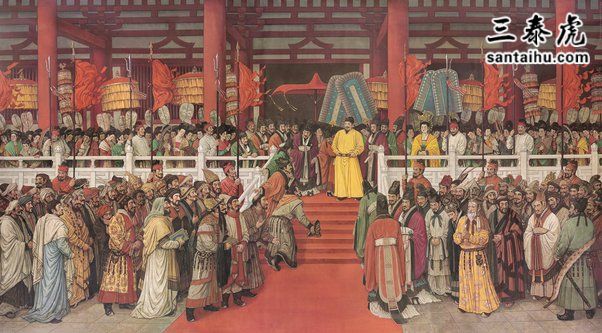
在汉文化中,各朝有各朝的文化。每个朝代都有自己独特的文化元素和思想,无论是在汉族政权下,还是在少 数民族政权下,以及移民(包括匈奴、鲜卑、波斯、犹太人、阿拉伯人、藏 人、羌人、党下、棣人、日本人、高句丽、南诏、苗族、印度人、突厥人、契丹人和女真人、蒙古人、满洲人)。但总的来说,他们有儒家思想、精英主义、中央、大国家和大治理、世俗主义、历史主义、人文主义、实用主义、自然主义、辩证法、宗教自由、祖先崇拜、英雄崇拜、皇帝崇拜等共同点。
(2) the red culture
(2)红色文化
This culture was obviously from Russia’s . It experienced the great transformation from the mechanical duplication of the into localization/sinicization and then the independent development.
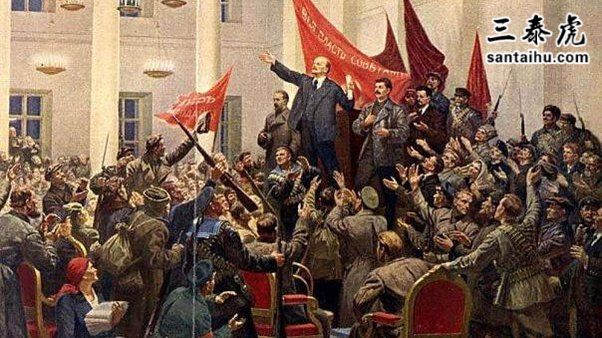
这种文化显然来自俄国,它经历了从机械复制到本土化、中国化再到独立发展的巨大转变。
(3) the modern culture (imported or self-developed since 1976).
(3)现代文化(1976年后的文化输入或文化的自我发展)
Again, this part includes both the absorption of foreign culture as well as the domestic development/new culture.
同样,这一部分既包含对外来文化的吸收,也包含国内的发展/新文化。
For the former, it mainly includes American culture, Western European culture, South Korean and Japanese cultures and to some extent Thai culture (without Muay Thai there would be no modern Chinese martial arts). If we consider Taiwan and Hong Kong’s uniqueness, then the cultures of Taiwan and Hong Kong also have a significant role.
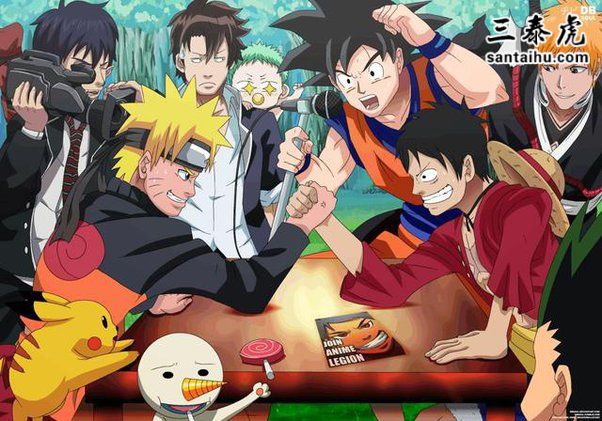

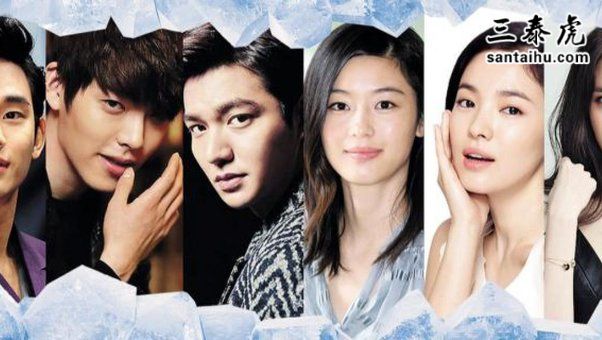
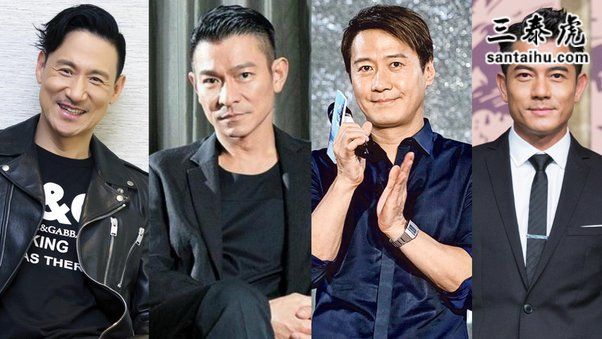
前者主要包括美国文化、西欧文化、韩国和日本文化以及一定程度上的泰国文化(没有泰拳就没有现代中国武术)。如果我们考虑到中国台湾和中国香港的独特性,那么台湾和香港的文化也发挥过重要的作用。
Since Japan, South Korea, Hong Kong in a sense are partly the “localized agent” for the Western culture (plastic surgery, pop music, beauty standard…), it could also be partly defined as “westernization”. Though this is not entirely true, part of Japanese and Korean cultures are the inheritance of Chinese traditional culture in certain periods (the Tang or Ming Dynasty).
由于日本、韩国、中国香港在某种意义上是西方文化的“本土化代理人”(整容、流行音乐、审美标准)……,也可以部分地定义为“西化”。虽然这并非完全正确,但日本和韩国文化中有一部分是中国传统文化在特定历史时期(唐代或明代)的传承。
For the latter of modernization, it’s the self-development inspired by the foreign or just really self-constructed cultures. A better term for this, to differentiate from “modernization with Western Characteristics”, is “modernization with Chinese Characteristics”.
对于中国传统文化的现代化,它是受外来文化启发的自我发展,或者实现了文化的自我建构。为了区别于“西方特色的现代化”,更贴切的说法是“有中国特色的现代化”。
This category is too big to summarize, including TikTok, Weibo, Epay, Esport, Ecommerce and etc. In a broader term, it could also be intertwined with the westernization and red and traditional cultures such as technocracy, meritocracy, modern bureaucracy, just to clarify.
这个类别太大了,无法简单概括,其中包括了抖音,微博,电竞,电商等。广义上说,它也可能与西方化、红色和传统文化交织在一起,如技术官僚主义、精英政治、现代官僚主义等。
Therefore, there is definitely part of Chinese modern culture being extracted and defined as “western culture” or “westernization”. This is determined by the reality of social productivity and the past hundreds of years of tech and cultural accumulation of the Western countries.
所以中国现代文化中肯定有一部分会被定义为“西方文化”或“西方化”。这是由社会生产力的现实和西方国家数百年来的技术文化积累所决定的。
This would include Christianity, Western law and social justice, economic theories, IR and IPE theories, Hollywood, pop music, TV series, sports (UFC, NBA and European football leagues), Westernized beauty standard, coffee culture, fashion culture.
这其中包含了基督教,西方法律和社会正义,经济理论,IR和IPE理论,好莱坞,流行音乐,电视连续剧,体育(UFC, NBA和欧洲足球联赛),西化审美标准,咖啡文化,时尚文化。
In short, the traditional culture was the core at first. The red culture then partly inherited the traditions (revolutionism, meritocracy, big government and big governance) while eliminated the backward feudal, agricultural, nomadic, oppressive, patriarchal, superstitious elements for as much as possible. The modern culture then helped the dominant red culture to evolve, revived the remaining traditional culture if good (though in practice, the bad one could also be awakened).
简而言之,中国文化最重要的核心是传统文化。红色文化在一定程度上继承了传统(革命主义、精英主义、大国家、大治理),同时最大限度地消除了落后的封建、农耕、游牧、压迫、宗法、迷信等因素。随后现代文化帮助红色文化进行演化,传统文化的精髓得以复兴,尽管在实践中,传统文化的糟粕也可能会死灰复燃。
The three are the unity of opposition. They are not static or mechanical but dynamic and dialectical to develop and evolve.
三者是对立的统一。它们不是停滞的、机械的,而是动态的、辩证的、发展的。
Suresh Datta
I am an expatriate and live in Hong Kong since 25 years. Have travelled almost all over China and have offices in Fujian, Yiwu and Guangzhou and thus understand the Chinese culture and traditions quite well.
I will give you my perspective as a foreigner.
我旅居国外,在中国香港生活了25年,足迹遍布中国各地,并在福建、义乌和广州设有办公室,所以我对中国文化和传统有相当的了解。
我可以说说我作为一个外国人的观点。
1) All Chinese whether living on the Mainland or overseas are very conservative and traditional. They are very proud of their heritage and ancestry irrespective of whether they live in Mainland China or in Hong Kong /Singapore/Taiwan/Canada or USA.
Although those living overseas are more modern and westernised than Mainland Chinese.
1) 无论是生活在大陆还是旅居海外的中国人都非常保守、传统。无论他们生活在中国大陆,还是生活在中国香港、新加坡、中国台湾、加拿大或美国,他们都为自己的传统和血统感到自豪。
但是生活在海外的华人比大陆人更现代、更西化。
2) I find them more modern than Westernised.
By modern I infer they like western movies,music, branded clothing watches, shoes, cars , food and other consumer products. This shows them in good light with their peers which accords them a higher social status.
To most Chinese money and status is very important.
2) 我发现他们更多的是现代化,而不是西化。
说到现代化,我指的是他们喜欢西方的电影、音乐、名牌服装、手表、鞋子、汽车、食品和其他消费品。这说明他们在同龄人中条件较为优越,社会地位更高。
对于大多数中国人来说,金钱和地位是非常重要的。
3) Most Chinese whether rich , educated or westernised ( not counting exceptions to the rule ) tend to be more tradional than Westernised because of the following reasons.
3) 大多数中国人,不管有没有钱,受没受过教育或者有没有被西化,常常都较为传统,原因如下。
a) They are more comforatble speaking Chinese than English in a group, at a party or at a dinner table. They have a higher comfort level speaking in their mother tongue.Sometimes it is considered rude or insensitive if one Chinese spoke in English to the other. This is more in kee with the social norms too.
a) 他们在群体、聚会或餐桌上说中文比说英语更自在。他们用母语说话更舒服。如果一个中国人用英语对另一个人说话,人们会觉得他无礼。这也更符合中国的社会规范。
b) Whenever I ask my office staff in China or a group of friends for a dinner the unanimous decison is to eat Chinese food rather than try Japanese, Korean, Italian, Mexcan or French even if such diverse fare is of Michelin Star quality.
b) 我每次邀请中国员工或一群朋友共进晚餐时,他们都一致同意吃中国菜,而不是去试试日本菜、韩国菜、意大利菜、墨西哥菜或法国菜,就算这些食物都是米其林星级的品质也不为所动。
c) In a multi-cultural society such as Hong Kong where people of different natiionalities work together in the same office, they usually cling together as a group for mutual help or go out for lunch together rather than with other foreigners.
c) 在中国香港这样一个多元文化的社会,不同国籍的人在同一间办公室工作,中国人通常会抱团互助或者搭伴吃午餐,不会主动和其他外国人一起。
d) They keep opinions to themselves, do not share their problems with others especially foreigners and tend to be overly discreet as opposed to a westerner who tend to share their problems with others or discuss an isssue with anyone to find an answer . This is because of the issue of 'face' which is a very cultural thing. ' Face ' is very important to a Chinese.
d) 他们不会发表自己的意见,不跟别人分享他们的困难,尤其对方是外国人时尤为如此。他们往往过于谨慎,而西方人西化和别人分享他们的问题,或跟任何人讨论问题寻求答案。这是‘面子’问题作祟,这是一个非常具有中国文化特点的问题。面子对中国人来说非常重要。
e) There is a general perception that Western values are different and rather out of sync to Chinese traditional values hence a Westerner is looked upon with some suspicion and doubt. In Hong Kong a foreigner is sometiomes called a ' Gweilo' meaning a Ghost. Foreigners are usually considered as ' outsiders'
e) 人们普遍认为西方的价值观与中国的传统价值观不同,而且与中国的传统价值观不同步,因此西方人会受到一些质疑和猜疑。在香港,外国人有时会被称为“鬼佬”。外国人通常被视为“外人”。
f) One hears lately that the Chinese Govt does not want Western influence in Schools and universities hence they have banned/restricted many books in their educational institutes to preserve the Chinese culture
f) 最近听说中国不希望西方势力影响中国的学校和大学,所以学校内禁了许多书籍来保护中国文化。
My observation is that Chinese society is too tradional , conservative and deep rooted for Western influence to make any appreciable dent.The Western influence is only to the extent that is beneficial to them and helps them to interact with others and in no way does it alter the basic tenents of a deeply tradional society.
我觉得中国社会过于传统、保守,西方的影响不会带来任何明显的改变。西方的影响只是在某种程度上对他们有益,帮助他们与他人互动,但绝不会改变一个根基深厚的传统社会的基本原则。
There is difference between being modern, Westernised and traditional Chinese, you cannot replace one with the other.
I believe it is good to maintain and preserve one's own culture and at the same time not being too rigid to move with the modern times. One does see that in HK the local Chinese people celebrate Bun festival, Ching Ming festival, Dragon boat festival and the Chinese New year with great pride in preserving their culture and at the same time are quite modern and forward looking.
现代化的人、被西化的人和传统的中国人之间是有区别的,无法互相替代。
我认为,保持和保护自己的文化,同时不要因太过死板而无法与时俱进,是非常理想的。你可以看到,中国香港的当地人庆祝包山节、清明节、端午节和中国新年,他们为保护自己的文化而感到自豪,但同时又非常现代、前瞻。
Isaiah Pablo
Sadly, yes.
I don’t agree with the westernization of China. It’s destroying a culture. I’ve read that the chinese is destroying traditional Chinese culture by rebuilding China. If they do use ancient Chinese culture, it’s to promote co unist and political ideals rather than historical accuracy.
As a Chinese person myself, i lean towards ancient Chinese culture. That’s where China’s cultural identity lies. I strongly believe that it must be preserved rather than thrown out.
很不幸,事实确实如此。
我反对中国的西方化。它正在摧毁一种文化。中国因为重建国家破坏了传统文化。他们使用中国传统文化,也是为了宣传,而非维护历史。
作为一个中国人,我更喜欢中国的古代文化。这就是中国文化认同的根基。我坚信人们必须保护这种文化,不能抛弃它。
此文由 三泰虎 编辑,未经允许不得转载!:首页 > 问答 » Quora网友:中国文化被西化了吗
 印度南方人在印度北方会受到什么样的文化冲击
印度南方人在印度北方会受到什么样的文化冲击 中国在现代化过程中并未被西化吗
中国在现代化过程中并未被西化吗 谈一谈中国的古代文化
谈一谈中国的古代文化 为什么越南如此幸运,传承到了中国文化,为什么菲律宾没能传承到中国的文化
为什么越南如此幸运,传承到了中国文化,为什么菲律宾没能传承到中国的文化 是什么原因促进了中国传统民族文化的国际传播
是什么原因促进了中国传统民族文化的国际传播 端午节是中国的节日,韩国为什么要把端午节说成是韩国的文化遗产
端午节是中国的节日,韩国为什么要把端午节说成是韩国的文化遗产 越南有自己的文化吗
越南有自己的文化吗 美版知乎:越南在文化上和中国相似吗,越南是“小中国”吗
美版知乎:越南在文化上和中国相似吗,越南是“小中国”吗